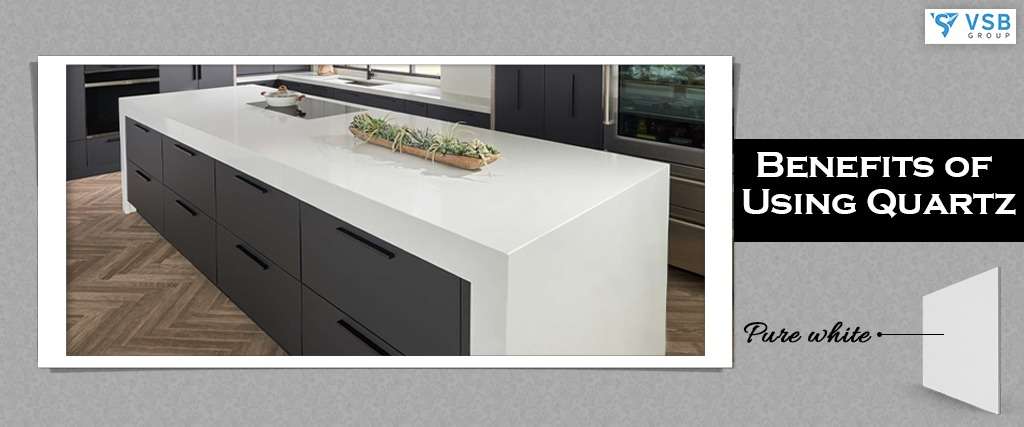Durability, availability, and versatility are some of the top benefits of Quartz countertops. Quartz stone is widely used by homeowners and professionals. Not only is this engineered stone used for its beauty, but it’s also loved for its low maintenance and durability.
Let us understand what the Benefits of using Quartz and Granite stones are in general Granite slabs and tiles are made from a natural stone that is mined, processed, and polished. Granite comes in a wide range of hues and patterns. Because nature does not repeat itself, no two granite surfaces are identical.
Now, let’s look at some key quartz benefits stone over granite: Quartz, on the other hand, is a man-made stone. It’s made up of 95% ground natural stone and 5% polymer resins. It’s essentially 95% natural stone vs 100% natural stone, thus it’s an artificial stone rather than a natural stone.
Here are a few benefits of using Quartz stone:
Non-Porous
Quartz is stain-resistant because it is non-porous. This means that there should be no problem as long as liquids are cleaned away as quickly as possible following a spill. Natural porous stones, such as granite, will absorb liquids and moisture. A kitchen countertop can accumulate oils, wine, juice, and other chemicals over time, making it more difficult to clean. Because the holes allow the substance to penetrate below the surface, where it cannot be wiped away.
Ease of Maintenance
Natural stone countertops, such as granite or concrete, must have a sealer or wax applied to them. One of the advantages of quartz countertops is that no sealer or wax coating is required. Quartz countertops, on the other hand, require less upkeep than other countertop materials. Quartz countertops are also very easy to clean and maintain since they are nonporous. Unlike other countertop materials, you won’t have to worry about cleaning stains out.
Stain and Scratch Resistant
Heat, vibration, and vacuum compaction, along with the mix of natural quartz and synthetic resins, generate a virtually non-porous surface in the quartz surface production process. Most ordinary household items, foods, and liquids do not affect this surface. Quartz is a synthetic material made up of 93% natural quartz and 7% resins. Because of its high quartz content, quartz is extremely scratch resistant. Granite is a natural stone, unlike quartz, and as a result, it is less resistant to other factors, such as discoloration. So, if you are someone looking to give your spaces a new look, http://vsbsurfaces.com is always here to give you the next options. Contact our team to get more information on this
Environment-Friendly
:-Quartz is made from locally sourced and repurposed minerals, making it more eco-friendly than granite.

